Foods That Are Bad for Your Heart

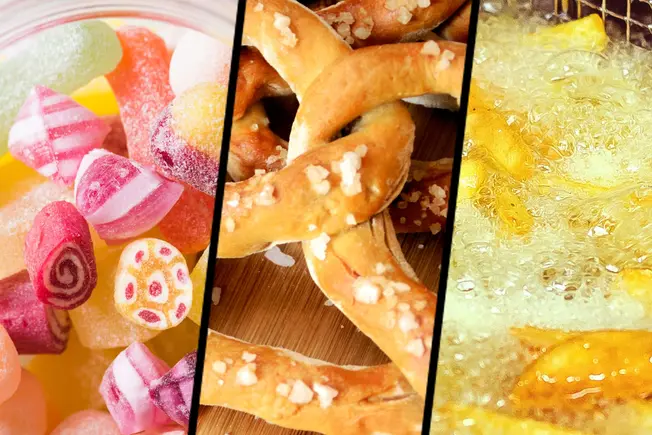
Sugar, Salt, Fat
Over time, high amounts of salt, sugar, saturated fat, and refined carbs raise your risk for a heart attack or stroke. If you’re worried about your heart, you’ll want to keep these out of regular rotation.
But rather than fixate on any one bad food, it’s wise to focus on your overall diet. You can still have these things if you mostly eat heart-healthy fruits and vegetables, whole grains, lean protein, and low-fat dairy.
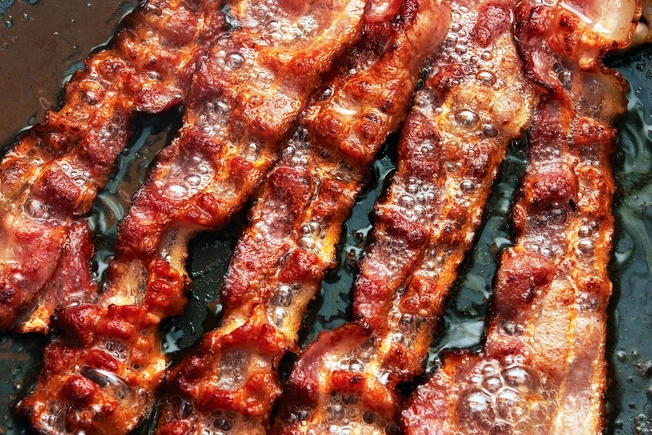
Bacon
More than half of bacon’s calories come from saturated fat, which can raise your low-density lipoprotein (LDL), or bad cholesterol, and boost your chance of a heart attack or stroke. It’s full of salt, which bumps up your blood pressure and makes your heart work harder. High amounts of sodium (the main part of salt) can lead to stroke, heart disease, and heart failure. Bacon’s added preservatives are linked to these issues as well.
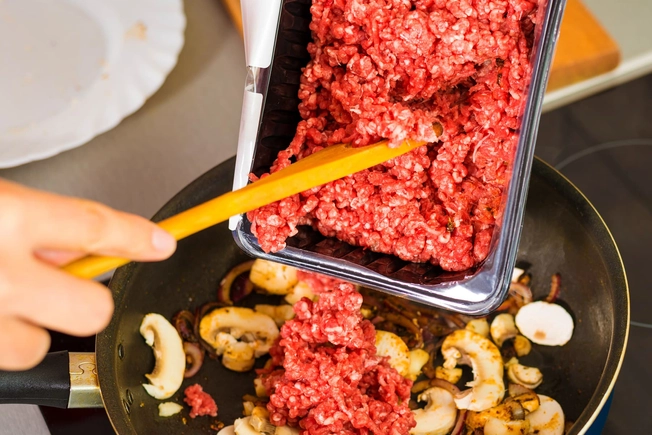
Red Meat
Eating too much beef, lamb, and pork may raise your odds for heart disease and diabetes. It may be because they’re high in saturated fat, which can boost cholesterol. More recent studies point to how gut bacteria process a part of the meat called L-carnitine. Limit your portions. Also, look for lean cuts like round, sirloin, and extra-lean ground beef.

Soda
Having small amounts of added sugar isn’t harmful, but a can of soda has more added sugar than experts recommend for a whole day. Soda drinkers tend to gain more weight and are more likely to be obese and have type 2 diabetes, high blood pressure, and heart disease. And while the science is still fuzzy on diet drinks, some research links them to weight gain and strokes. Your best bet is plain, carbonated, or unsweetened flavored water.
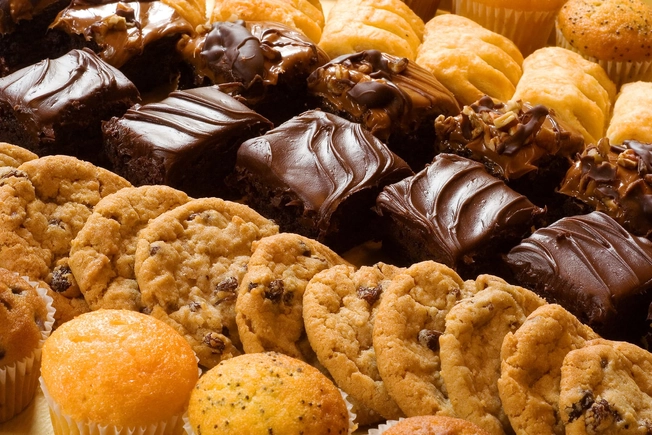
Baked Goods
Cookies, cakes, and muffins should be rare treats. They’re typically loaded with added sugar, which leads to weight gain. They’re also linked to higher triglyceride levels, and that can lead to heart disease. Their main ingredient is usually white flour, which may spike your blood sugar and make you hungrier. Make healthier treats: Swap in whole-wheat flour, trim the sugar, and use liquid plant oils instead of butter or shortening.
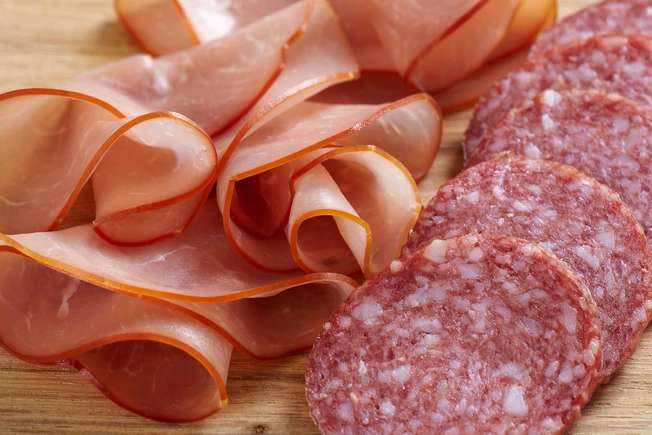
Processed Meats
Hot dogs, sausage, salami, and lunch meat are the worst types of meats for your heart. They have high amounts of salt, and most are high in saturated fat. When it comes to deli meats, turkey is better for you than salami because it doesn’t have the saturated fat. But it still has a fair amount of sodium, so it isn’t as heart-healthy as fresh sliced turkey breast.
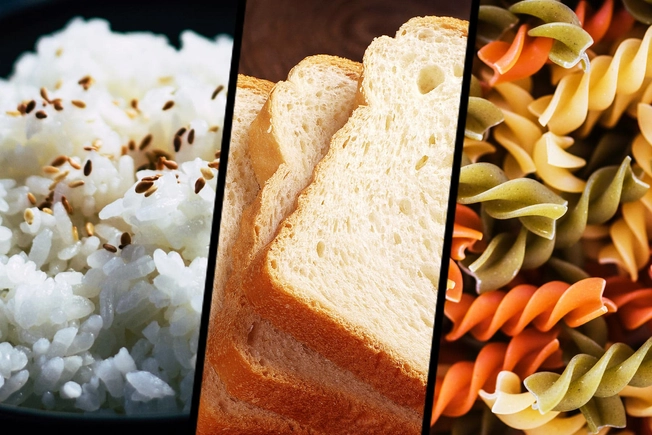
White Rice, Bread, and Pasta
Rice, bread, pasta, and snacks made from white flour are missing their healthy fiber, vitamins, and minerals. Refined grains quickly convert to sugar, which your body stores as fat. A diet high in refined grains can cause belly fat, which studies link to heart disease and type 2 diabetes. Try to get at least half your grains from whole grains like brown rice, oats, and whole wheat. When you shop, look for the words "100% whole grain."
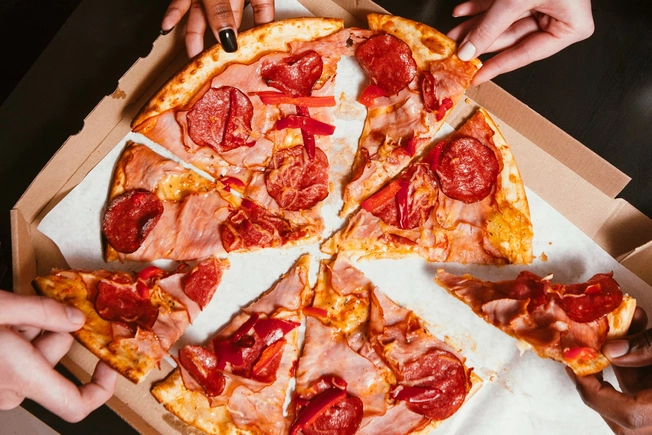
Pizza
Pizza can be healthy if you make it the right way, but most take-out pizza and frozen pies have staggering amounts of sodium, fat, and calories, all of which can raise your risk of a heart attack. When you order out, opt for a thin crust (whole wheat if possible), ask for less cheese, pile on the veggies, and skip the pepperoni or sausage, which are loaded with salt. For the most heart-healthy pizza, make it yourself.

Alcohol
Moderate drinking won’t harm your heart unless you have high blood pressure or high triglycerides, a type of fat in your blood that can boost your odds of heart disease. Heavy drinking, on the other hand, can lead to high blood pressure, heart failure, strokes, and weight gain. So if you don’t already drink, don’t start.
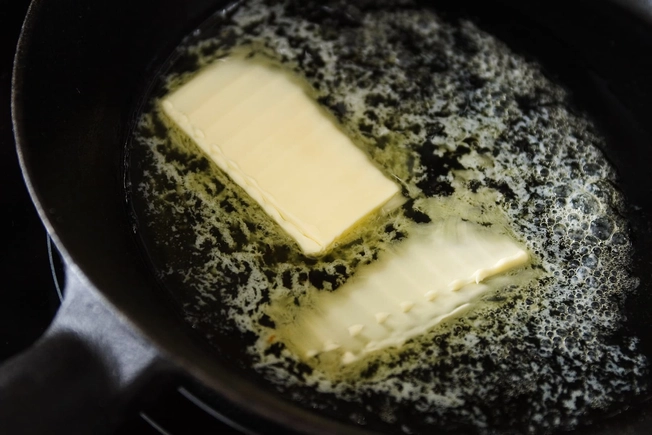
Butter
Butter is high in saturated fat, which can raise your bad cholesterol and make heart disease more likely. You're better off to replace butter with olive oil or vegetable oil-based spreads, which contain heart-healthy mono- and polyunsaturated fats. If you have high cholesterol, a spread with stanol is even better. Regular use can help lower your LDL cholesterol levels.
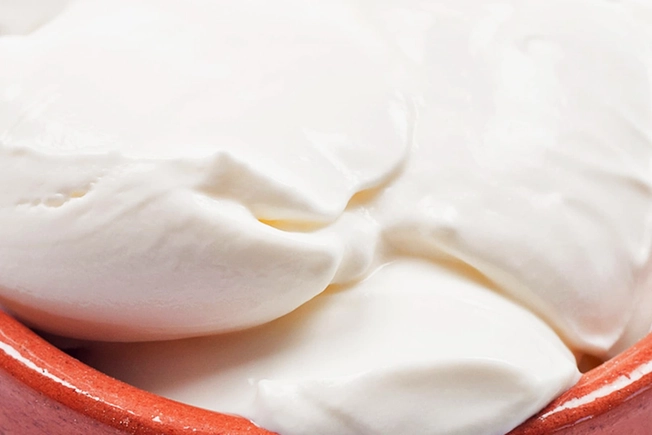
Flavored, Full-Fat Yogurt
Yogurt can be a super source of nutrition. Eating it regularly might protect you from high blood pressure. But watch the kind you buy. Flavored yogurts are full of added sugar, with its links to weight gain, high blood pressure, inflammation, and heart disease. For the healthiest choice, get plain low-fat yogurt and add your own fresh fruit, cinnamon, or vanilla for flavor.
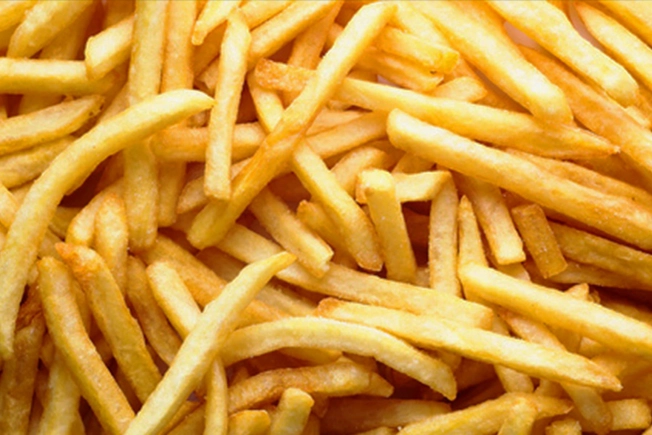
French Fries
The deep-fried potatoes from restaurants and fast-food places have lots of fat and salt, which is bad news for your heart. One study found that people who ate french fries or hash browns 2 to 3 times a week were more likely to die early. If you indulge, get the smallest portion possible or split your order. Even better: Make your own oven-baked fries with heart-healthy olive oil. They’ll be even better for you if you use sweet potatoes.
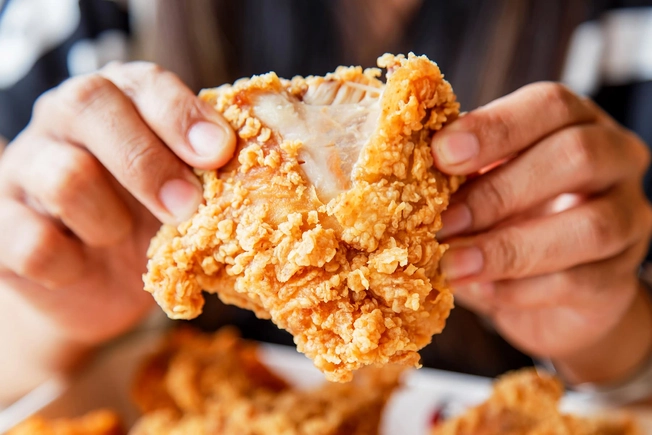
Fried Chicken
Deep-frying chicken adds calories, fat, and sodium to an otherwise healthy food. Studies have linked fried food with type 2 diabetes, obesity, and high blood pressure -- all of which raise your odds of heart failure. For a crispy but healthier choice, bread skinless chicken breasts in whole-wheat flour and bake instead of frying.
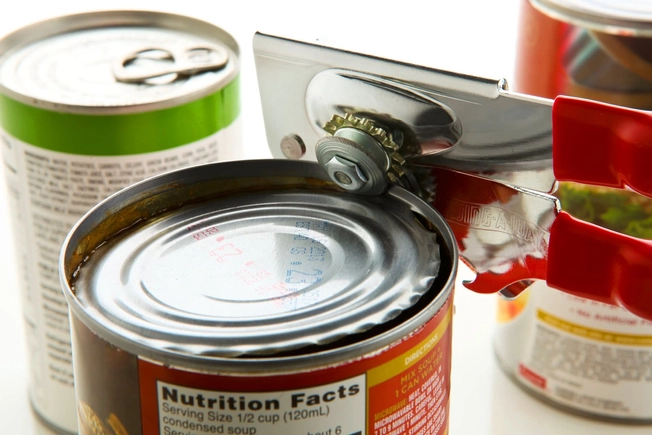
Canned Soup
Soup can be an easy way to get more vegetables, protein, and fiber. But watch out for unhealthy ingredients. Canned soup often has lots of sodium, which can cause high blood pressure, heart attack, stroke, and heart failure. And any cream-based soup has unhealthy saturated fat. The healthiest way to enjoy soup is to make it from scratch with a low-sodium broth. If you do buy prepared soup, check the label for the least salt and fat.
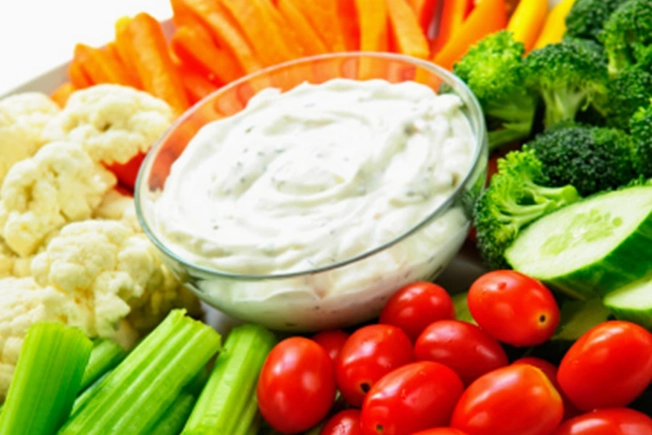
Ranch Dressing
The main ingredients of this popular dressing are typically buttermilk, salt, and sugar. This makes it high in fat, sodium, and calories. None of that’s good for your heart. You can make a healthier version of your favorite creamy dressings by blending low-fat sour cream or cottage cheese with low-fat buttermilk and fresh herbs like dill, tarragon, or chives.
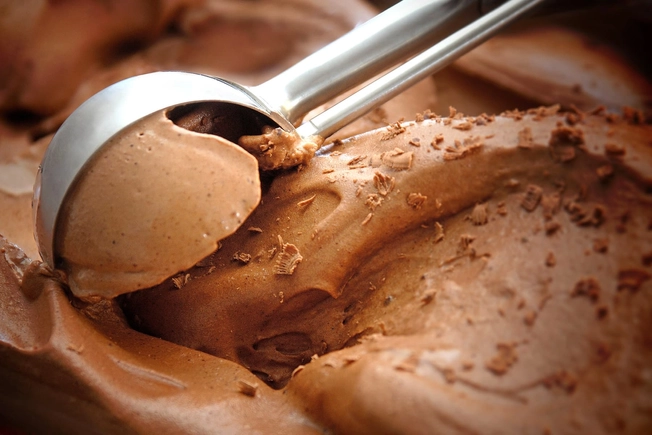
Ice Cream
Ice cream is high in sugar, calories, and saturated fat, so save it for a special treat. Eating foods loaded with fat and sugar leads to weight gain. It can also drive up your triglycerides and lead to a heart attack. Cut your calories and fat by choosing sorbet, low-fat or nonfat frozen yogurt, or frozen fruit bars. Check the label for the least amount of sugar and saturated fat.
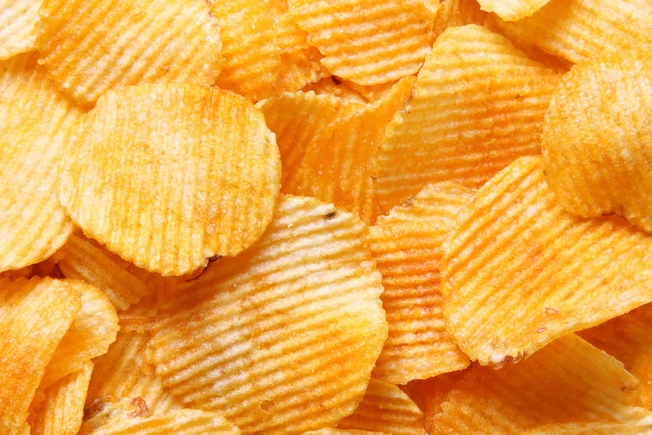
Potato Chips
Potato chips are one of the foods that contribute most to weight gain. And not only are they loaded with saturated fat, they’re also covered in salt -- which is also linked to heart disease. Skip the lower-sodium or low-fat potato chips. They’ll just leave you hungry again. The most nutritious snacks combine healthy proteins, carbs, and fats, like whole-grain crackers with low-fat cheese or homemade popcorn tossed with olive oil.